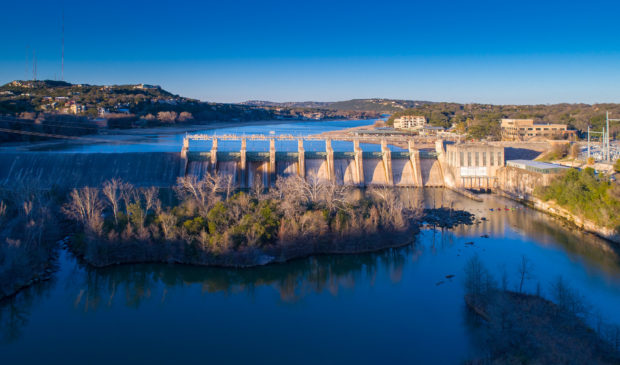Newsletter Signup
The Austin Monitor thanks its sponsors. Become one.
Most Popular Stories
- Austin’s airport is getting a new concourse and 20 more gates but not until the 2030s
- New rules in the works for electric vehicle charging stations
- Judge rules city can’t use taxpayer money for South Central TIRZ
- Budget deficit looms over city this year and beyond
- Save Our Springs Alliance sues City Council over Open Meetings Act
-
Discover News By District

Water conservation items move to Council, but not without debate
Monday, May 17, 2021 by Amy Smith
The City Council committee overseeing Water Forward, Austin’s long-range water resource plan, approved two resolutions last week containing code amendments that would both underscore and expedite the work required to conserve and reclaim water for reuse.
One resolution, brought by Water Oversight Committee Chair Ann Kitchen, would revive three measures Council had incorporated into the stalled Land Development Code rewrite that is currently in litigation. The three amendments would require water benchmarking and water balance calculations for development projects, mandatory on-site water reuse systems for large development projects, and expanded reclaimed water requirements.
Because Council had already partially approved these measures in the Land Development Code revisions, Kitchen’s resolution proposes waiving another round of commission reviews of the amendments and instead taking them directly to Council for a public hearing and consideration.
Council Member Paige Ellis took issue with bypassing commission review, noting that there are two new Council members with new Planning Commission appointees. Ellis offered an amendment striking Kitchen’s language to waive commission review requirements, adding language that would seek stakeholder input and directing the city manager to recommend ways to mitigate the affordability impact of the new building requirements.
There was some back-and-forth on the merits of sending the amendments back through the Planning Commission and on the likelihood that the costs associated with implementing Water Forward would come at great expense but save money in the long run. Kitchen agreed to accept the affordability aspect of Ellis’ amendment, given that Austin Water is already evaluating costs as part of its incentives strategies for developers to incorporate conservation measures into their design plans.
But Kitchen kept intact her language waiving requirements that the amendments undergo commission review. “It’s not just the Planning Commission,” she explained. “It has to go back to a committee of ordinances of the Planning Commission and then to the (full) commission, and then they have to have public hearings.” Given all of those steps, she added, “I think it would have the effect of slowing it down.”
With that, the committee voted 4-1 (Ellis abstaining) to move the resolution to Council for approval.
Council Member Kathie Tovo laid out a complementary and somewhat similar resolution singling out specific recommendations from the Water Forward task force that would put Austin on better footing to meet the demands of population growth and continuing drought conditions. The resolution calls for a dual plumbing ordinance for large commercial and multifamily developments, the expansion of reclaimed water system connection requirements, water benchmarking and budgeting for new developments, a landscape transformation ordinance and incentive programs, and irrigation efficiency with incentive programs.
Tovo resisted adding an amendment by Ellis that would have addressed affordability, noting that affordability has been an integral part of the Water Forward process from the start and will continue to be. Tovo said she would be bringing her item as a separate resolution to Council and anticipates changes to the document.
Rather than continuing to discuss the benefits of adding an amendment on affordability, Vice Chair Vanessa Fuentes cut to the chase and suggested the committee go ahead and vote on Tovo’s resolution. The committee, made up of Kitchen, Fuentes, Ellis and Council members Alison Alter and Leslie Pool, voted unanimously to pass the Tovo resolution on for Council approval.
A third resolution brought by Fuentes was included as an amendment to Kitchen’s resolution. The item addresses flood control, an issue of particular interest to Fuentes, who represents District 2, which has suffered the brunt of Austin’s severe flooding events.
Photo made available through a Creative Commons license.
The Austin Monitor’s work is made possible by donations from the community. Though our reporting covers donors from time to time, we are careful to keep business and editorial efforts separate while maintaining transparency. A complete list of donors is available here, and our code of ethics is explained here.
You're a community leader
And we’re honored you look to us for serious, in-depth news. You know a strong community needs local and dedicated watchdog reporting. We’re here for you and that won’t change. Now will you take the powerful next step and support our nonprofit news organization?









